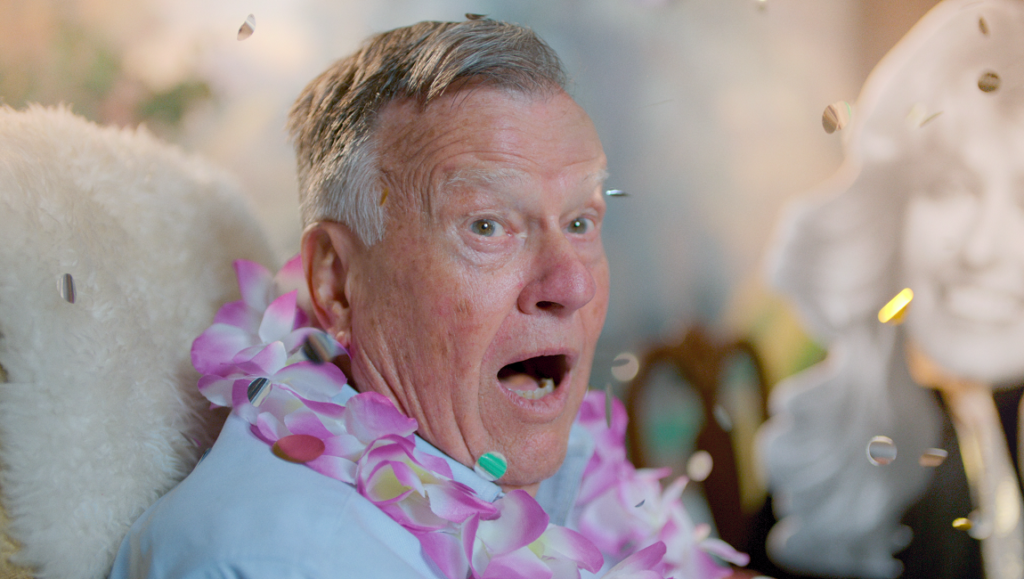Dick Johnson is Dead forgoes potentially rich avenues of more universal concern, but remains a heartfelt portrait and preservation of the filmmaker’s father.
Documentarian Kirsten Johnson is magnificent at integrating certain presentational modes — montage, time capsules — into works of memory preservation. She reinterprets such a time capsule in Dick Johnson is Dead, depicting her 86-year-old father’s last moments with his family. Johnson begins her film with her octogenarian father, a retiring psychiatrist, departing his practice in Seattle to come live with his daughter, and watching the subsequent process of Dick Johnson’s loss of independence, and the burgeoning awareness of that development, is heartbreaking. Rather than either dehumanizing her father’s death or getting too kitschy with her particular cinematic form, Johnson intimately delineates her human subject, inviting the viewer into the family, so to speak. And if her latest isn’t as expansive as Cameraperson, understandable given its more limited scope, her technique here still reminds of the bouquet of images that compose that mosaic documentary.
Kirsten Johnson’s humanistic approach in Dick Johnson is Dead is at its best when at its most personal — specifically, dealing with her father’s relationships and their enriching power. But where Johnson’s previous film elucidated a common lineage through an array of different images, constructed primarily through unused footage of her earlier projects she has worked on, Dick Johnson is Dead, while deeply felt, fails to achieve that level of universality due to its very specificity. It’s understandable why her focus stays rooted on her father, and it’s often effective, but it does so at the expense of any larger statement about the loss of individuality that comes at the end of one’s life. By proposing a litany of different demise scenarios, Johnson seeks to steal focus, therapeutically, from the struggles of her dementia-stricken father. In composing recreations of death — like bleeding out on the sidewalk after a construction incident — Johnson is acknowledging that, like anyone, her father could die at any given moment. In a sense, this is a blunt reminder that all life ends with death, but this extra comedic “relief” acts as balm for the pain both father and daughter are bearing as Dick reaches his final days. Meanwhile, the exploration of private rituals — things like inside jokes, unique memories, and remembrances of the deceased — that are shared adds an enriching texture to the Johnson family’s personal history. And so, if Dick Johnson is Dead fails to rise above time capsule cinema, built primarily to preserve the memory of the filmmaker’s father, it at least remains a charming and heartfelt portrait of a familial love.
You can currently stream Kirsten Johnson’s Dick Johnson is Dead on Netflix.


Comments are closed.